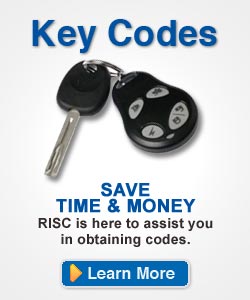Insurance Services
Insurance Education
Without question, the self-help repossession is one of the most legally invasive acts allowed by law. Entering upon the private property of another for the purpose of recovering defaulted collateral without legal assistance has the potential for serious repercussions.
Courts across the country have ruled there are "inherent" risks associated with the self-help repossession process. This On-Line insurance seminar is designed to define and clarify the specific coverage's that protect both the collateral recovery specialists who service self-help (collateral recovery) repossession assignments and the creditor who hires the services of collateral recovery specialists.
The new Uniform Commercial Code (UCC) states and courts agree, that due to the "inherent" risks associated with the self-help repossession process, the creditor can be held directly liable for the actions of the collateral recovery specialists they hire. The UCC and the numerous court decisions hold the creditor liable even though they may define the collateral recovery specialist as an independent contractor.
It is not argumentative then that two of the most vital criteria for reducing the potential for liability, litigation, bodily injury and managing the "inherent" risks associated with the self-help repossession process are:
- Professional training and certification for those who provide self-help repossession services. You will find these unique, nationally recognized training and certification programs by visiting www.RiscUS.com.
- Adequate and proper insurance coverage's designed to protect the collateral recovery specialist, his client and the debtor. Collateral recovery insurance consists of a specially designed "Package" designed to respond to all aspects of the self-help collateral recovery process.
In this on-line seminar we will address insurance….the various specific coverage's included in the "package" of coverage's that respond to the covered claims as specified in the insurance contract.
We believe readers will find this seminar provides specific, easy to understand information that is important to all parties associated with the collateral recovery process. Since insurance contracts are sometimes difficult to understand we have attempted to explain the various coverage's in layman terms and with examples of how the various coverage's respond to covered claims.
Over the past several years, since the introduction of the specific coverage's for collateral recovery specialists, approximately eighteen (18) insurance carriers have left this market due to excessive losses. There are three clear and primary reasons for these excessive losses both insurance carriers and creditors have suffered:
- Failure on the part of the insurance carrier and the creditor to realize the tremendous importance of requiring the proper training and proof of professional competency from the collateral recovery specialists they hire or insure.
- A creditor's reliance on the collateral recovery specialist's insurance and their contract to protect them.
- And lastly, repossession fees as the final determining factor for claims.
It would be wise to remember that insurance responds only after a claim is filed, and then only if that claim is covered does the insurance pay out. Insurance carriers look for ‘loop holes' to avoid paying claims.
Insurance (or fees for self-help repossession services) should never be the determining factor(s) in hiring the services of a collateral recovery specialist. A much more important consideration should be professional certification of competency and knowledge of Risk Management principles.
INSURANCE CARRIERS: "ADMITTED" VS "NON-ADMITTED" CARRIERS
One of the most important aspects of the insurance contract, which seems to be overlooked by both collateral recovery specialists and creditors is whether or not the carrier is an ‘ADMITTED' carrier.
"Admitted" insurance carriers are members of a state's Insurance Guaranty Fund in those states where they offer coverage's. These Insurance Guaranty Funds protect policyholders on behalf of all "admitted" carriers in the event of bankruptcy or financial hardship of an individual "admitted" carrier.
"Non-Admitted" carriers are not required to participate in the Insurance Guaranty Funds and therefore, in the event of insolvency or financial hardship of a "non-admitted" carrier, the insured and the insured's client may suffer due to non-payment of the claims.
Note: It is recommended that both the collateral recovery specialist and the creditor client verify whether the carrier they are working with is an "admitted", or "non-admitted" carrier before making a final decision as to whether or not to accept that carrier.
There are two types of insurance contracts available to collateral recovery specialists: an Occurrence Contract or a Claims Made Contract. The Occurrence Contract is a policy that provides coverage's for a covered claim that occurs during the policy period, regardless of when the claim is actually made. Example: Under the Occurrence policy a claim may be filed even after the policy has expired, as long as the covered incident happened during the policy period. Such a claim cannot be charged to any currently held policy. Most creditors require their collateral recovery specialists to be covered under an Occurrence
policy.
A Claims Made Contract is a policy that responds to covered claims only if a
written claim is made during the policy period or any applicable extended
reporting period.
- Example: Five years ago the collateral recovery specialist was insured under a Claims Made policy but subsequently switched his coverage to an Occurrence policy or another Claims Made policy. Five years later a claim was filed against his original Claims Made policy. Under this scenario, he has no coverage. However, if he had been covered under an Occurrence policy five years ago that Occurrence policy would respond.
Note: Many creditors will not accept a Claims Made policy due the uncertainty of
retroactive dates and the specifics under which losses are covered. It is strongly
recommended that those collateral recovery specialists that choose Claims Made
insurance contracts be sure to have their insurance agent explain the Extended
Reporting Period Form.
“PACKAGE” POLICY VS MULTIPLE INSURERS
"Package" Policies, as they relate to the collateral recovery process are those insurance contracts written by one insurance carrier that include the various, specific coverage's necessary to cover all aspects of the collateral recovery process with the exception of Workers Compensation or Occupational Hazard coverage. The specific coverage's will be explained under the Explanation of Coverage's portion of this article.
Note: "Package" policies, written by "admitted" carriers with an Additional Insured endorsement with certificate specific to the creditor provides the creditor with the assurance that the insurance contract is complete and that the creditor will be notified if the policy is cancelled or non-renewed.
Note: "Multiple Carrier" policies are constructed from several different insurance carriers. Special care should be taken by the collateral recovery specialist and creditor to make sure all applicable coverage's are included and that they have Additional Insured endorsement with certificates from all carriers.
ADDITIONAL INSURED CERTIFICATES VS CERTIFICATES OF INSURANCE
Both the Additional Insured Certificate and the Certificate of Insurance indicate the various coverage's found in the insurance contract. When the insurance contract expires, is cancelled or non-renews, the insurance agent should notify both the insured collateral recovery specialist and any client that has been provided a Certificate. However, this does not always happen. In order for the client to be sure they are notified of changes in the status of the insurance contract they should require an Additional Insured Certificate. In that event, if the insurance contract expires, is cancelled, or non-renewed and the creditor client is not notified the carrier must honor the Additional Insured Certificate.
INSURANCE COMPANY RATINGS
A.M. Best is the industry standard guide for rating insurance companies. It is recommended that collateral recovery specialists and creditors look to "A", or "B+" rated "admitted" carriers for coverage. Insurance carriers with these credentials have excellent track records of financial resources and re-insurers to provide quality and lasting protection for all parties.
PUNITIVE DAMAGES
Punitive damages are monetary awards by the courts meant to "punish" the offending party to the extent they will refrain from further similar offenses. Punitive damages are usually far in excess of any actual damages. The insurance contract specifically excludes punitive damages, which means that the offending party is liable for all punitive damages.
EXPLANATION OF COVERAGE’S
General Liability
A. General Liability coverage is commonly referred to as "Premises Liability" and is a broad form of liability protection usually carried by any and all types of businesses.
B. Responds to covered claims that occur at the designated business location and to other claims covered by additional endorsements (see Repossession Endorsement below).
C. This coverage excludes claims involving automobiles. Automobile related claims are covered in other parts of the policy. Note: The Repossession Endorsement is a special endorsement attached to the General Liability coverage that responds to covered claims incidental to the act of self-help repossession activity. This special Endorsement should contain the following or similar language. "This policy includes all operations necessary or incidental to a repossession business, INCLUDING WRONGFUL REPOSSESSION". Note: Wrongful Repossession; means a repossession which results in, or where allegations are made, that there was a "bodily injury", "property damage" or "advertising injury" arising out of any error or omission, malpractice, or violation of a personal nature, committed or alleged to have been committed by the collateral recovery specialist, or on behalf of the collateral recovery specialist.
The Repossession Endorsement is the foundation for covered claims arising out of the actual repossession process. Most insurance contracts offered to collateral recovery specialists specify a $1 million per incident and either a $2 million, or $3 million aggregate. The aggregate limit is the most that the carrier will pay under a policy for the sum of the covered claims during the policy period.
A policy cannot be cancelled due to losses during the policy period it can be cancelled if there is a finding of gross negligence at any time. Gross negligence may include but not be limited to fraud, non-payment of premium, dealing in illegal drugs, etc.
Garage-Keepers
Garage Keepers coverage responds to covered claims for physical damage, theft, fire, etc., while the recovered collateral is in the collateral recovery specialists care, custody and control at the storage facility covered by the insurance contract. Garage Keepers also comes into play when the insured takes the vehicle off the tow truck and drives it into the parking lot of an auction or into their storage facility.
The amount of Garage Keepers coverage should depend upon the average number of vehicles stored at the insured storage facility. It is fair and equitable to both the recovery agency owner and the creditor client to remember that it is rare that an incident will totally destroy all stored collateral. The averages we are seeing are $150,000 for the small, rural recovery agencies, $350,000 is the average required by most creditor contracts and $500,000 to $1 million for the very large operators.
Example: Recovered collateral catches on fire or is damaged or stolen while in the recovery specialist's insured storage facility. It is important to know that there are three, very distinctly different Garage Keepers coverage's. The three types of Garage Keepers Coverage:
- Legal Liability: If a covered loss occurs and the insured recovery agency owner has done everything he/she is legally liable to do in order to protect the recovered collateral, this coverage will not respond.
An example of when this legal Liability coverage would respond is if the recovery agency owner or staff neglected to lock the gate to the insured storage facility and collateral was stolen by driving it through the unlocked gate. This is definitely not a coverage you would want to have. - Direct Excess: If a covered loss occurs, the carrier of the Direct Excess coverage will search for any other insurance carrier that may also have liability. If there is other coverage that might apply, the Direct Excess insurer may determine that their policy is in "excess" (secondary) and may not accept liability for the loss. This can be a real dilemma for the insured and the creditor client.
- Direct Primary: If a covered loss occurs, the Direct Primary insurer will respond regardless of who is liable or whether there may be other coverage.
Note: Direct Primary coverage is not appreciably more in cost and should be a required coverage by the collateral recovery specialist and the creditor.
On Hook Coverage:
On Hook coverage is a property damage coverage only which covers the vehicle being towed while it is being towed. If the vehicle being towed is hit by another vehicle, the tow truck coverage would apply unless the driver of the other vehicle is at fault. This usually happens when the driver of the other vehicle hits the towed vehicle from behind. Since this coverage only applies to property damage of the towed vehicle the standard coverage is normally $50,000. This coverage may be increased if the collateral recovery specialist normally recovers a large number of exotic or custom vehicles.
Drive Away Coverage
This coverage responds to covered claims when collateral has been recovered by driving the collateral away from the point of recovery, until it arrives at the storage facility. It is not hooked to a tow truck. There are three areas in the insurance contract that responds when the collateral is recovered by driving it away from the point of recovery.
- The liability portion of Drive Way coverage is found in the Non-owned part of the insurance contract. Therefore, it is very important that Non-Owned coverage be a part of the insurance contract.
- The physical damage portion of Drive Away is found in the Garage Keepers part of the insurance contract and applies to any drive away. Since some collateral recovery specialists deliver all recovered collateral either back to the creditor or to an auction they may feel Garage Keepers coverage is not necessary or important. However, even without storage facilities, if they perform a lot of drive away recoveries they would be well advised to carry Garage Keepers.
- A drive away recovery that results in a Wrongful Repossession claim is covered under the General Liability portion of the insurance contract.
Hired and Non-Owned Coverage
Hired and Non-owned Coverage's apply to situations where the vehicle is not owned by the insured, but may be used in the business of the insured.
-
Examples
- An insured's employee uses his/her own vehicle while performing services for the insured; secretary uses his/her own vehicle to drive a company deposit to the insured's bank.
- An insured's employee, in his/her own vehicle, delivers another employee to the location of a voluntary recovery so the vehicle can be driven back to the insured's storage facility.
- A pizza delivery service where the insured hires drivers with their own vehicle to deliver the owner's product.
Note: Remember, Non-Owned coverage also applies to the liability portion of the Drive Away coverage.
Commercial (tow) Truck Coverage
Commercial (tow) truck coverage provides liability and collision coverage for covered claims involving property damage and/or bodily injury. The general requirement for commercial truck coverage with regards to repossession activity is $500,000. However, the primary consideration for tow truck coverage should be to require these trucks be covered for repossession activity. Insurance agents whose carrier offers only the General Liability side of a policy may not have a carrier that offers repossession coverage on tow trucks. Therefore, it behooves the collateral recovery specialist and creditor to require the insurance agent to provide, by an Additional Insured Certificate that the tow truck is covered for repossession activity.
When tow truck coverage is not written to include repossession activity and the tow truck carrier learns that their insured's tow truck is involved in repossession activity they (normally) immediately cancel the policy due to a fraudulent application. Many times the creditor client is not notified of the cancellation so the recovery specialist is, many times, performing repossession services with no tow truck coverage. If the creditor client has an Additional Insured Certificate and are not notified of the cancellation the carrier is usually obligated to pay a covered claim.
Personal Property of Others Coverage
This coverage applies to debtors personal property contained in the recovered collateral. To avoid a claim of missing personal property by a debtor, it is important that personal property be inventoried immediately upon arrival at the storage facility by the collateral recovery specialist who recovered the collateral. He/she should then sign and date the personal property inventory sheet, attach an identification tag to the personal property container and place the personal property in secured storage. If this chain of inventorying and storing personal property is not maintained and the debtor sues, the courts will usually award damages to the debtor because the chain of protection has been broken.
Building/Business Personal Property
This coverage applies to covered damages to your office and/or business and personal property contained in your insured office (fire, theft, hail, windstorm, etc.). This is an extremely important coverage and the collateral recovery specialist should always make sure they have this coverage, either in their "package" of coverage's or through a local, independent insurance agent who writes business property insurance.
Fidelity (Employee Dishonesty) Bond
The Fidelity (Employee Dishonesty) Bond is required by virtually every creditor and protects against dishonest or fraudulent acts by employees of the collateral recovery business owner. Fidelity insurance is defined as; "an agreement to indemnify an employer (or creditor client) against a loss arising from the lack of integrity or honesty of an employee, such as a loss from embezzlement, fraud, theft, or other covered incidents". The standard amount of coverage required by most creditors is $1 million.
Workers Compensation Coverage
Although many lenders are requiring collateral recovery agencies they hire to show proof of Workers Comp coverage, many of these recovery agencies are exempt from state mandated Workers Comp coverage because they do not meet the state's statutory threshold for the total number of employees. Further, first time purchasers of Workers Comp usually find they must go through the state's special Workers Comp fund where the cost is prohibitive. For example, a recovery agency owner applying for Workers Comp for the first time may pay as much as $25 per hundred dollars of pay, per week, per field recovery agent. This places an impossible obstacle on the small recovery agency regardless of their professional competency.
With permission from the creditor the small recovery agency that falls below statutory limits might be given the option to carry Occupational Hazard coverage. This coverage is almost identical to Workers Comp and has very comprehensive coverage's for the recovery agency and the creditor. The cost for Occupational Hazard coverage for field recovery agents for $1 million in coverage is usually $158 per month. In our example above, if a field recovery specialist is making $1,000 per week and the recovery agency owner is covering him with $1 million in Workers Comp coverage his cost would be $250 per week or $13,000 per year whereas the cost of like coverage through Occupational Hazard coverage would be $158 per month or $1,896. Although the coverage's are almost identical the difference in premium costs are significant and many times this is the difference in survival for a small, professional operation.
Summary
In summarizing our On-Line Insurance Seminar, it is not our intent to convince either collateral recovery specialists or creditors to require the coverage's we have provided and explained. Rather, we hope this seminar has explained the coverage's in such a way that business men and women in the collateral recovery industry and the lending industry will be able to make an intelligent decision as to their insurance needs. We also do not advocate for any particular insurance carrier or insurance agent. That being said, the following considerations should be given when purchasing coverage's for a collateral recovery operation.
- The insurance carrier is either an “A” or “B+” rated carrier.
- The insurance carrier is an "Admitted" carrier.
- The insurance policy (contract) is written as an Occurrence policy.
- The policy includes, in writing, Wrongful Repossession coverage. This language should be found in the Certificate of Insurance in the "Description of Operations" located near the bottom of the Certificate. The language should indicate that "this policy covers for repossession activity, Including Wrongful Repossession.
- If the policy is not a "package" policy and does not cover commercial (tow) trucks, this separate Certificate of Insurance should include language that confirms that tow trucks are insured for repossession activity.
- The Fidelity (Employee Dishonesty) Bond, as a Fidelity insurance would be in a separate policy but the bond cost may be displayed in the Certificate of Insurance. Workers Compensation or Occupational Hazard will be in a separate policy and with a separate Certificate of Insurance.
As you may know, Insurance Services USA is a proud associate of RISC (Recovery Industry Services Company), www.RiscUS.com. One of the many services we offer at RISC to both the lending community and to professional collateral recovery specialists is the review of Certificates of Insurance to verify whether or not the policy coverage's include the entire "package" of coverage's that adequately and properly protect both the creditor client and the collateral recovery operation. We invite you to review the RISC website to learn more about the many services we provide to the lending industry and professional collateral recovery practitioners across the county.
Be Safe,
Joe Taylor







